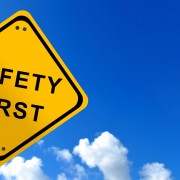Dementia is a Syndrome
Many people 60+ will experience changes in brain function as they age. Some changes come with normal aging, but those that significantly impact daily functioning may be due to a medical condition.
It’s important to know that dementia is not a diagnosis. It is syndrome made up of a collection of symptoms impacting brain function. There are currently more than 120 various medical causes or conditions that cause symptoms of dementia.
Orchard at Athens is an assisted living and memory care community in Athens, Georgia dedicated to supporting families living with Alzheimer’s or related dementias like vascular, Lewy body or frontotemporal disease.
The leadership team and staff of Orchard are specifically trained and prepared to support the very wide range of unique needs that can present themselves throughout the wide spectrum of dementia care.
Alzheimer’s Disease
Testing for Alzheimer’s may be considered if a person begins to have difficulty learning new information and remembering new or recent experiences. Symptoms will present because Alzheimer’s proteins in the brain may be causing damage to the hippocampus area.
People may find they also have difficulty with directions, finding things, getting lost, or struggle with dates and time. Difficulty with time can include accuracy about how much time has passed, what time of day it is, or even being able to identify their present age or season of life.
Living with Alzheimer’s may, for instance, cause someone to think that they are in a different time in their life. They can become confused about the people they are currently in a relationship with and may suddenly not recognize those closest to them. For example, someone may think that their daughter is their sister. This can be a very difficult and emotional experience for families.
For more information please visit www.mayoclinic.org
Vascular Dementia
When the brain is affected by events such as a TIA, or what is commonly called a mini-stroke, symptoms of vascular dementia are common. Cardiovascular issues will affect blood and oxygen flow to the brain. Symptoms of vascular dementia vary depending on what part of the brain has been affected by a stroke and can include:
- Sudden changes in thinking and executive function
- Emotional liability and energy shifts
- Personality change in judgment or reasoning
For more information please visit www.strokeassociation.org.
Frontal Temporal Dementia
A less known form of dementia specifically affects the brain’s prefrontal cortex. Families will report they begin to notice a loved one struggling with self-control, awareness of themselves, decision making, managing impulses, making good judgments, or the ability to begin and complete a task.
FTD and can be quite challenging for families. A loved one may be quick to lose their temper or say what’s on their mind even if it is not socially appropriate. Many people will also begin to lose interest in past hobbies or tasks.
Damage to a person’s temporal lobe may also create impairment in speech production and some people will develop Aphasia. A person with non- fluent aphasia has difficulty forming words. A person with fluent aphasia has difficulty with comprehension and may make errors such as pointing to their nose when asked to point to their ear.
This is an extremely frustrating experience for the person living with the disease and can include:
- Loss of impulse control
- Saying mean or rude things to others
- Unexpected or triggered behavior
- Dis-inhibition with food, sex, emotions, actions
- Difficulty with finding words
- Difficulty with understanding the meaning of words
- Difficulty saying words
- May speak words others cannot understand
For more information please visit
For more information: www.alz.org/dementia/fronto-temporal-dementia and www.caregiver.org/frontotemporal-dementia.
Lewy Body Dementia
Resembling Parkinson’s disease, Lewy Body dementia affects the brain’s ability to move and fine motor skills. It typically also creates sleep disturbances such as nightmares and hallucinations.
It is imperative to get a diagnosis if you suspect Lewy Body dementia as persons living with this disease are extremely sensitive and often react differently to commonly used medications for Alzheimer’s or other dementia’s. Antipsychotics, for example, can have a toxic or even life-threatening effect.
Specific symptoms may include:
- Disturbing dreams or night terrors
- Problems with gross motor movement
- Fine motor changes in hands or swallowing
- Rigidity or episodes of syncope
- Hallucinations
- Extreme drug responses
For more information on Lewy Body please visit www.lbda.org
If you or a loved one may be experiencing any of the dementia symptoms described in this article, please go to the links above. If symptoms are progressing and you would benefit from the support of an assisted living community, contact Orchard at Athens to schedule a free consultation. A team member will be able to share more information with you and guide you to local resources and supports that can help.







